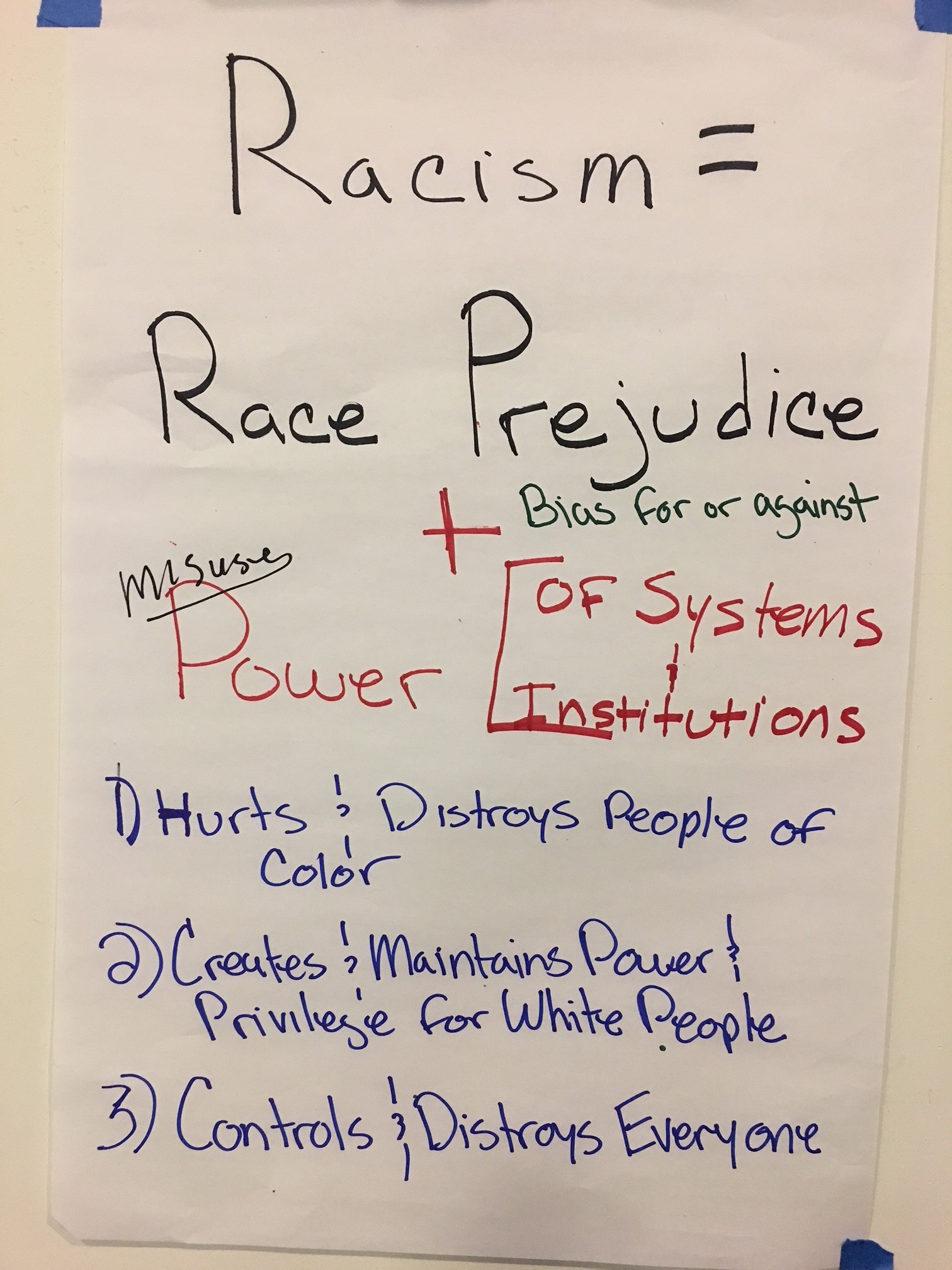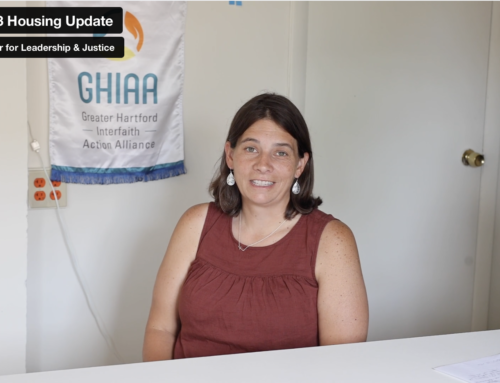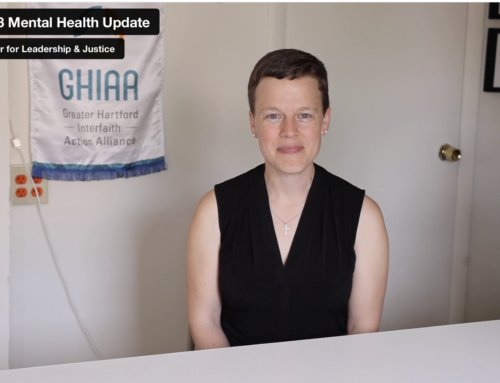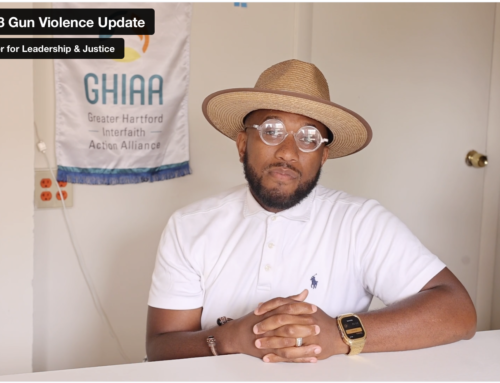CAC partnered with Immanuel Congregational Church, United Church of Christ, and the Episcopal Church of Connecticut to sponsor a second round of the People’s Institute for Survival and Beyond (PISAB) antiracism training. Forty people gathered for the 2.5-day training held April 24-26, 2018, at St. John’s Episcopal Church in West Hartford. A third round will take place October 5-7, 2018, at Immanuel Congregational Church in Hartford. Below is an interview with one of the participants.
Name: Elijah N.
Gender: Male (of transgender experience)
Race: White
Place of birth: Philadelphia, PA
Age: 50s
Faith Community: United Church of Christ (UCC), also affiliated with the Metropolitan Community Churches (MCC)
Racial makeup of Faith Community: predominantly white
Location of Faith Community: Hartford, CT
If you think back to your past, when were you first aware of race? I was aware of color difference before the age of nine; however, around the age of nine I had an experience that made me more aware of race. I was an avid reader and my father was a principal. He got for me a book on Dr. Charles Drew’s biography. Dr. Drew, an African American physician known as the “father of blood banks,” developed ways to process and store blood plasma. I remember being outraged reading in this particular biography that Dr. Drew died as the result of an automobile accident particularly because a white doctor did not give him a necessary blood transfusion because he was black and the doctor claimed only to have “white blood.” I felt rage at how unfair that was.
Growing up in a white working class neighborhood, I got the sense that being white mattered. At eight or nine years old, children are normally concerned with fairness, so I knew that racism was not fair. I believe that white children have to be socialized into white supremacy.
As a person of faith, what does race have to do with it? I have taken the PISAB training many times with social service providers. However, this time I was acutely aware of being in a group of people of faith. As a person of faith, I believe race has everything to do with faith! There is a scriptural mandate to do justice, not only in meeting needs, but also in challenging structural injustices that deny people equitable access to resources.
We must recognize that racism permeates so much of Christian history and even church today. White people used Christianity as a vehicle to develop a white supremacist country that objectified people of color and denied them access. While a student at Union Theological Seminary in the City of New York, I took a course with Dr. James Cone on Black Liberation Theology. I was assigned to read and respond to a book by William Jones called Is God a White Racist? As one of two or three white people in a class of twenty or more students of color, I had a lot of anxiety. However, it was also the first time I had to engage racism in Christianity as well as my own whiteness. This was not easy! I was apprehensive but as hard as it was, I realized that my own liberation was tied up in this work. There is a cost to me too for not dealing with racism and white supremacy.
Why did you choose to do the PISAB anti-racism Training? This was actually my third time doing the training. I did the training twice with the National Association of Social Workers in New York City as a part of their strong effort to engage social service providers in antiracism work. The NYC chapter hosted four to six PISAB trainings a year for executive directors, senior management and staff who provided social services. The first time I participated, I was serving in a senior position at the Manhattan LGBT Center.
I had not seen PISAB in the Hartford area, so when I saw the antiracism training offered through my church I took it as an opportunity to connect with others committed to doing antiracism work.
I appreciate the training’s focus on the systemic and structural aspects of racism. The training is not just another session on individual prejudice or racial education and sensitivity. Per my experience in NYC, the training of both people of color and white people on systemic racism led to accountability groups that met regularly to address racism in social services at the institutional level in NYC. Although we did not completely eradicate racism, I witnessed significant changes in many of the social service agencies.
What was the most challenging aspect of training? Holding and sitting with the depth and degree of white supremacy and how it permeates everything in our society is heavy. In addition, it is challenging to recognize that I not only benefit from this racial contract that was established and continues to be established, but that my privilege has oppressed many people of color that I love and interact with.
What was the most illuminating/life giving aspect of training? It was life giving to be in intentional community and connect with others – black, white, and Hispanic – committed to antiracism work. It is easy to feel hopeless, but the connectedness illuminates that there are next steps to make and people to do it with … I am not alone! I have been hungry for this connectedness, and the training gave me hope.




